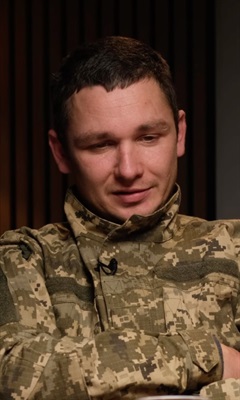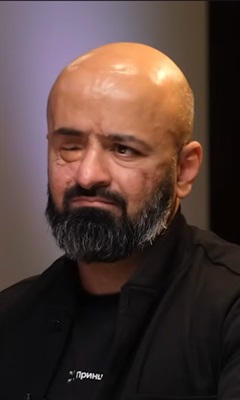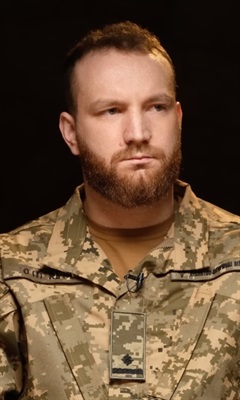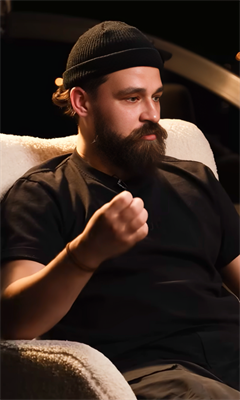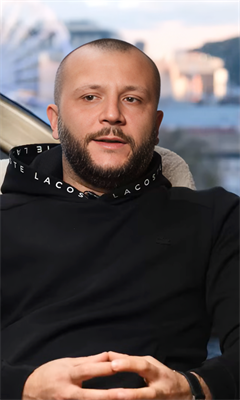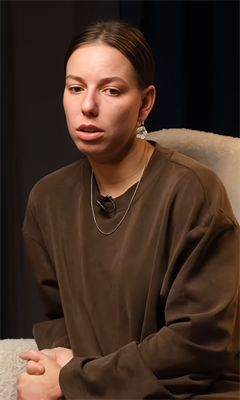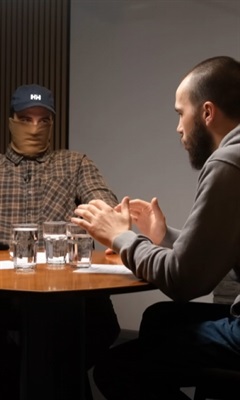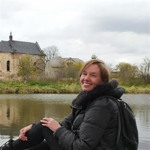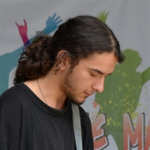Hell in Popasna: a neighbor killed, his leg found in the garden. The story of four neighbors
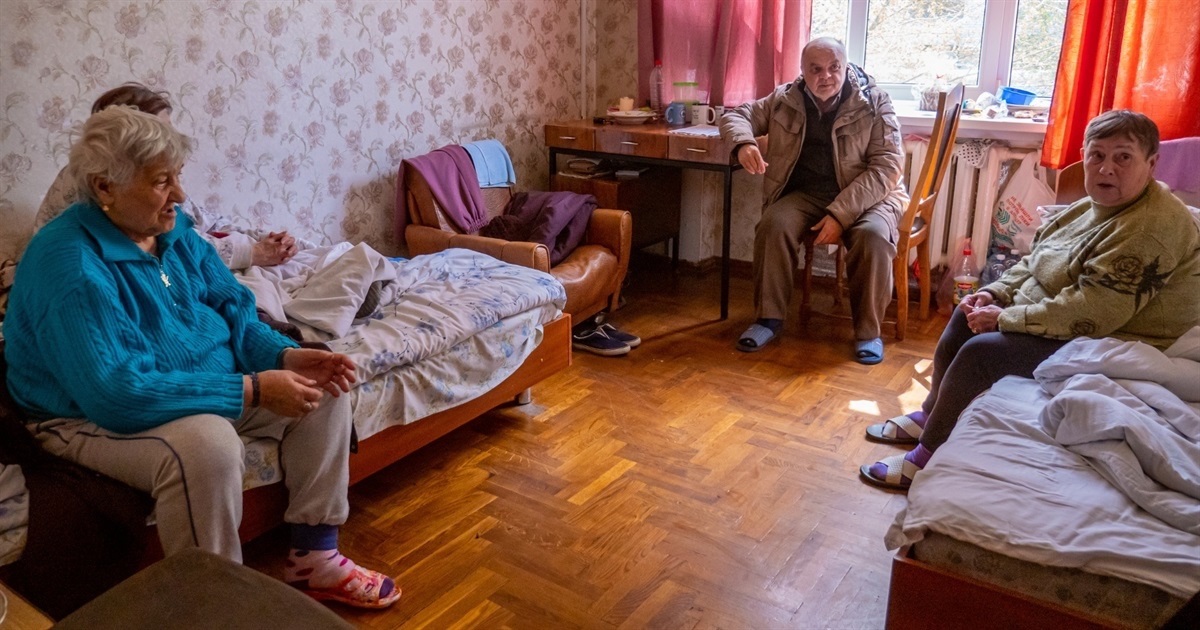
Meeting fellow countryfolk
This is the second time I became an IDP. I am from Luhansk. I had lived there until 2014, and now I moved from Sievierodonetsk. I’ve traveled Luhansk oblast far and wide due to my job, so fellow countrymen’ stories touch the deepest fibers of my soul.
Zhovtnevyi hotel in Dnipro was meant to be demolished a few months ago; its owners were going to build something more modern on its site. Nevertheless, after February 24, when the IDPs from Kharkiv, Donetsk and Luhansk oblasts had flocked to Dnipro, the hotel owners came to the volunteer headquarters of KUST charity organization (Ukr. abbreviation of Kulturna Stolytsia [Cultural Capital]) and offered to convert the hotel into a shelter.
There had been no utilities in the hotel until March; they were restored in a joint effort of the IDPs and volunteers. The hotel was electrified and connected to the sewage system again.
Antonina Molodozhon and Nina Derevyanchenko share one bed, and Volodymyr Strychko and Nina Kuzmenko share another. Before the full-scale Russian invasion on February 24, 2022 they all were neighbors living on the same street; their families were friends.
Each family used to have their own flats and houses, modern facilities and steady income. Now, they live in the same room. However, it is better than living under the constant shelling, they say.
“Some have stayed there ever since the shelling started, and others have come all the way to Pervomayka (Pervomaysk has been occupied by the militia of the so called LPR (Luhansk People’s Republic) since 2014). No shelling is all they want,” says Antonina.
The four of them left their city on March 21. Before that day they were hiding: at their house and flats at first, and then in the basements. The families managed to evacuate when Popasna signaling and communications service took out their workers to Bakhmut city and picked up civilians.
The interviewees say they were driven squashed in a truck like sardines. The 60 of them; standing, reclining or lying on the floor of the truck. They had not lived in Bakhmut for long — they ended up in Dnipro on April 11. Antonina and Nina were the first to settle in Zhovtnevyi. When the second bed became vacant, Volodymyr and Nina became their roommates.
However, a happy old friends reunion was preceded by a hard journey: the basements, the deaths of the acquaintances and one of the family's sons’ injury.
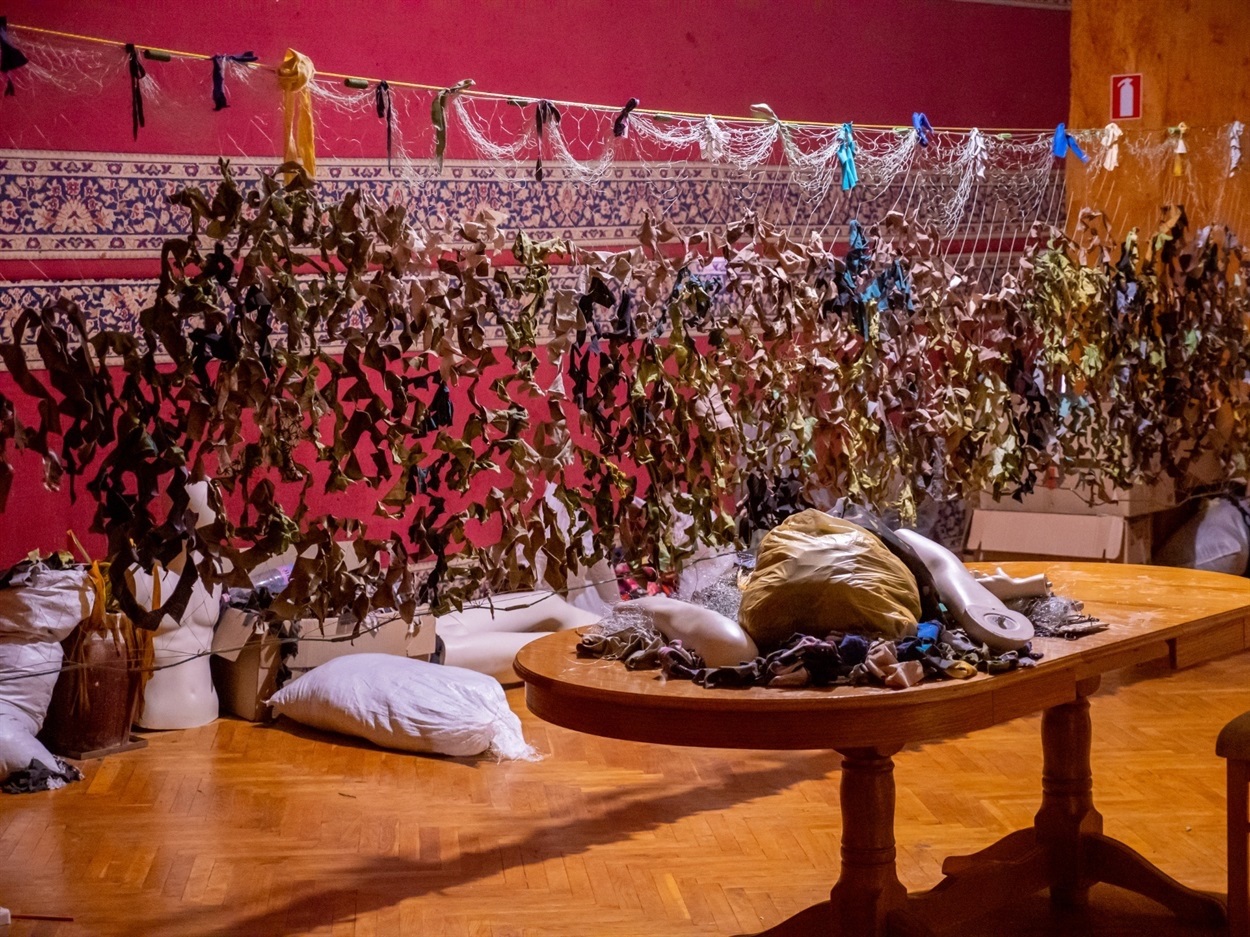 Camouflage nets are being weaved for the Ukrainian defenders on one of the shelter’s floors. Photo by Svoi.City
Camouflage nets are being weaved for the Ukrainian defenders on one of the shelter’s floors. Photo by Svoi.City
In the line of fire
"We had been hiding in the basements in Popasna for another month hoping that they wouldn't let the Russians go that far. Anyway, people then became desperate. They say there even was a man who’d hung himself on the stage of the House of Culture (a Soviet term for a cultural center — translator) in Popasna. Nobody dared to take him down.
People were scared; they didn’t know whether it was a suicide or a murder. They say he had fought in Chechnya. Our acquaintance who used to work as a head of Oshchadbank in Popasna, which has been blown down recently, died a horrible death.
She went to board a bus; she wanted to leave the city. There were stairs which led outside from a bomb shelter, with no handrails or something, and she was trampled to death there. She was 84 or 85 years old. What a woman she was, what a high position she held in the bank, and she was buried like a dog somewhere in the yards,” says Antonina.
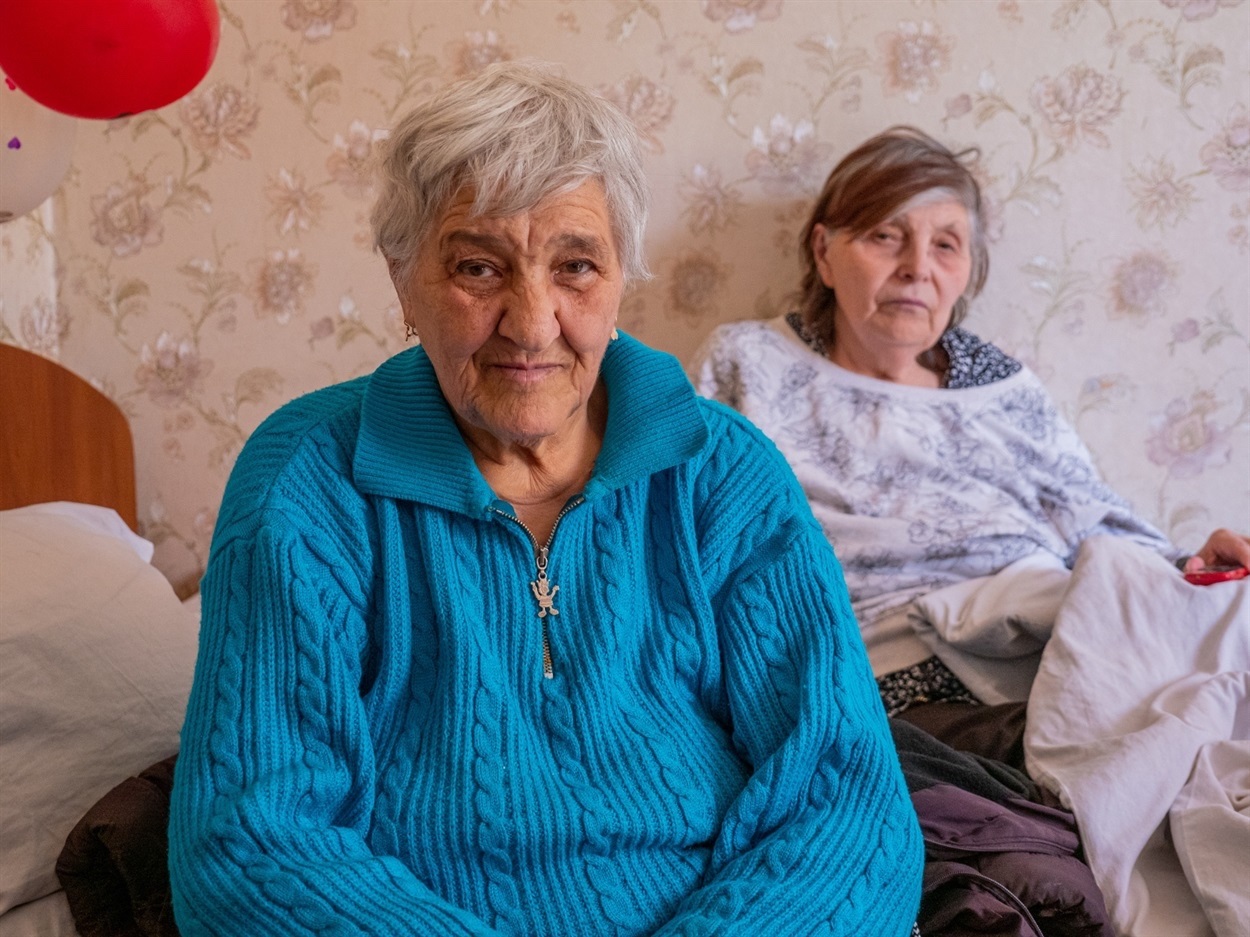 Antonina and Nina are telling Svoi.City how they were evacuated. Photo by Svoi.City
Antonina and Nina are telling Svoi.City how they were evacuated. Photo by Svoi.City
Meanwhile, Volodymyr recalls the day when he went out to the outdoor toilet on March 13. According to him, this day has become his second birthday.
“It was quiet outside. I had barely sat on the toilet when I heard a massive bang. A huge bomb crater appeared just in two meters from me — a missile hit. Oddly, the outhouse survived. The next day the same spot was hit. and there were huge, huge craters. On March 13, I was born again. They say a missile never strikes twice. Yes, it does".
Volodymyr says there have already been some journalists from abroad in Zhovtnevyi, and the families have already told their story. However, Volodymyr feels more relaxed with Svoi journalists because they are fellow countryfolk and understand what places he is talking about.
“Back then, when we were still staying in our house, we hoped it’d all come to an end soon and rarely went outside; we didn’t check our garden. However, we have curious neighbors. Andriy climbed on the bench and was able to see what was going on in our garden; he noticed we didn’t go out. And the soldiers had left by then. Andriy saw a leg in our garden. It was dreadful. Before that, there was shelling. Someone might have gone outside and was hit,” Volodymyr says.
“Our neighbor was also hit. Petya went out for a smoke… End of story. He’s dead. Vova went out too. His family kept pigs. He was going to go tend to them. And our military, they were sitting in the basement. “Who are you? Go down into the basement.” He did. When the shelling ceased, he came home and said: “I was in the basement”. “How? Where?” They let him go saying “go back home”, says Nina.
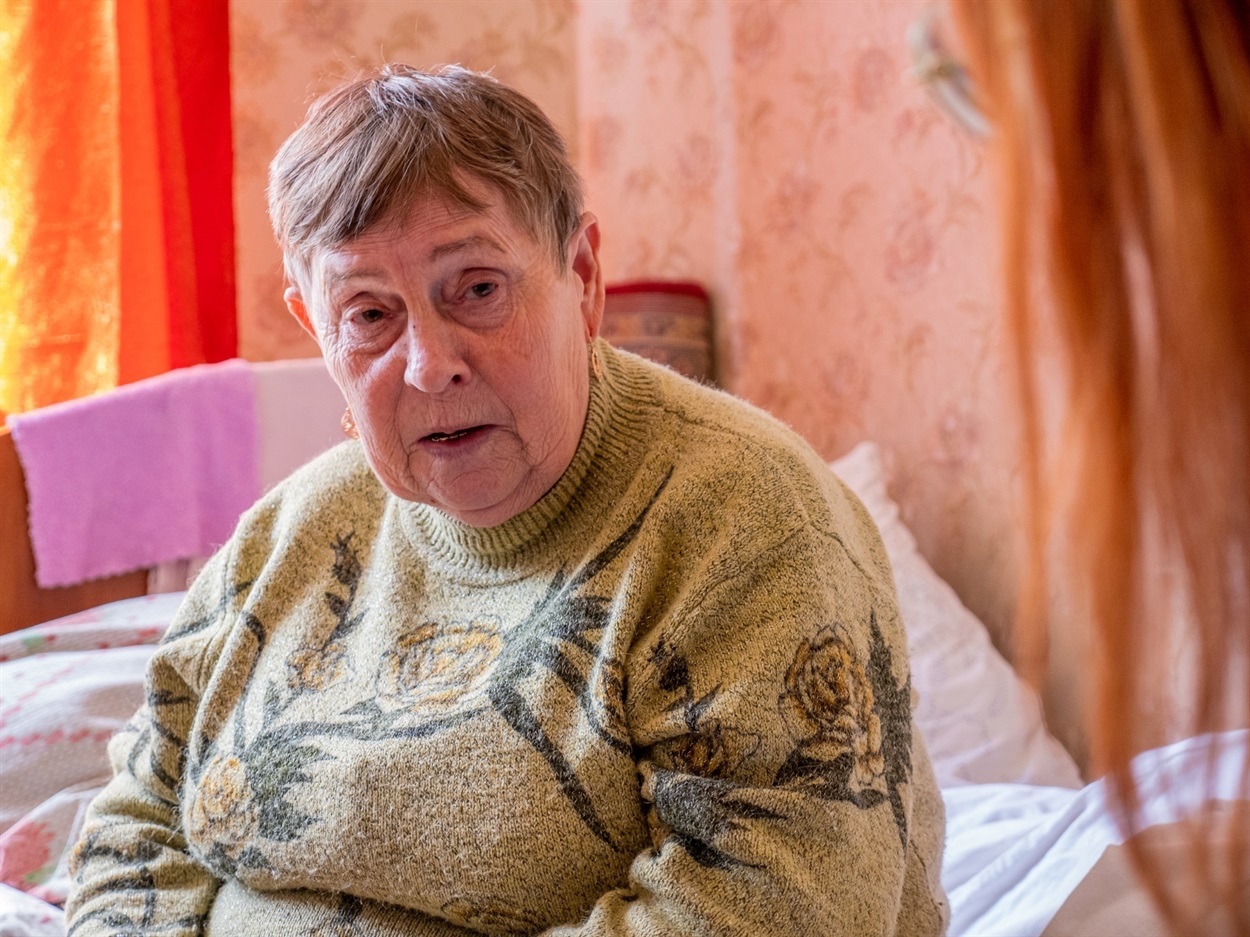 Nina is telling Svoi media about the horrors of war she has seen. Photo by Svoi.City
Nina is telling Svoi media about the horrors of war she has seen. Photo by Svoi.City
All four interviewees agreed that shelling was massive. The Russians were indiscriminate in the targets of shelling, and the Ukrainian military had to hide somewhere, even if it was a basement of an outbuilding near a piggery. After such shellings the families decided to move into a flat in the city, and from there — to the basement and then a truck.
“We arrived in the city. We were freezing in the cold draughts there, as the windows had been broken. We were sleeping in felt boots and fur coats since it was very cold,” says Nina.
In a few days the Ukrainian military told people to leave their flats because it was becoming increasingly dangerous. They moved to ShCh 7 and sat there for a day. The Armed Forces of Ukraine came there as well and told them that civilians must leave immediately.
“The ShCh were taking out their staff and picked us up as well. They took us to Bakhmut. They packed us in the van so that we all fit in,” says Volodymyr.
Their journey was very hard, especially taking into account the fact that all the interviewees have chronic illnesses. Moreover, Nina had been undergoing extensive treatment, and on February 23, she was forcibly discharged from the hospital due to the Russian invasion.
“We were riding each in our own way. I was lying on a bag. My husband was also lying down. There was a young man standing; he was trying to remain upright but was constantly falling down. He had had a drink at the railway station in Komyshuvakha and was saying, “Oh, I don’t feel good. I don’t feel good.” It was a hard journey. We were riding in a truck with a roof and sides. Thankfully, it was for free. Our accommodation in Bakhmut was also free. We were living in a sports school there, but only briefly. We were told it was dangerous to stay there, so we all were sent to Dnipro,” Nina says.
Volodymyr and Nina’s son was injured right near the entrance to their house. First, he was hospitalized in Bakhmut, but lately he has been transferred to a hospital in Lviv. He has a serious wound, but in the end, doctors expect he will walk. However, he will need a prolonged rehabilitation.
“We were getting on the train. The piece of skin like this was ripped off his lower leg by the splinter. Fortunately, it missed a bone,” says Volodymyr.
“My son was there at that time; he was administering first aid,” says Antonina.
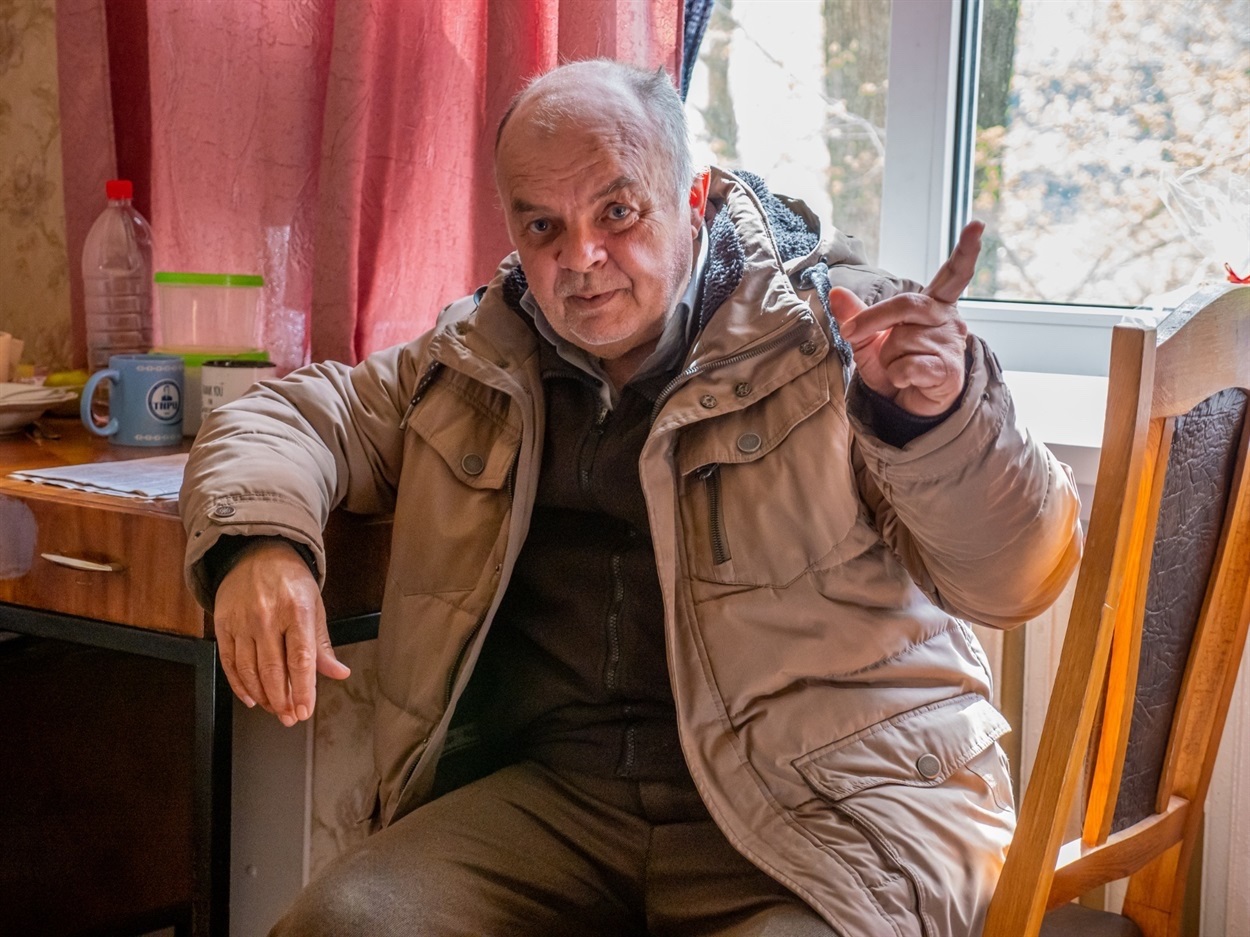 Volodymyr is telling Svoi journalists how his son was injured. Photo by Svoi.City
Volodymyr is telling Svoi journalists how his son was injured. Photo by Svoi.City
“It had already become dangerous to stay in the flat, so we moved to the basement of ShCh. I remember going past the front desk; I was wearing burky felt boots and a men’s fur coat. And our son had just been wounded and was going with me. I was going first, and my son was following me. Our military were looking at me, and they said, “Granny, do you need help?” And I tell them, “Come on, help the kid. He’s wounded.” “Is he?” They took him to the hall and dressed his wound. Then they called an ambulance, and he was taken to the hospital,” says Nina.
The boy was evacuated from the hospital to Bakhmut and then to Lviv. He had had all the necessary surgeries, and now he is in stable condition. According to the parents, the boy was just lucky.
"We were left with nothing"
“When we left, half of our house had been ruined. We were walking down the street; almost all the houses were destroyed. A neighbor went outside and was killed by a splinter. He remained lying there because everybody left.
We’ve become hoboes; we have no home, nothing. Good thing we took our papers and passports. I was also going to take the housing registration book. And then I thought, “Why do I need it?” We went to the police. We filed a report that our house was destroyed by the Russian troops. The police took the papers from us, printed something out, and that was it. God knows what happens next. Besides, we’ve already got an IDP status,” says Volodymyr.
“Sleeping on a strange bed isn’t like being at home,” Nina says. “At home, there’s everything you’ve made for yourself: the decorations, your favorite things, the photographs, some pleasant trifles.”
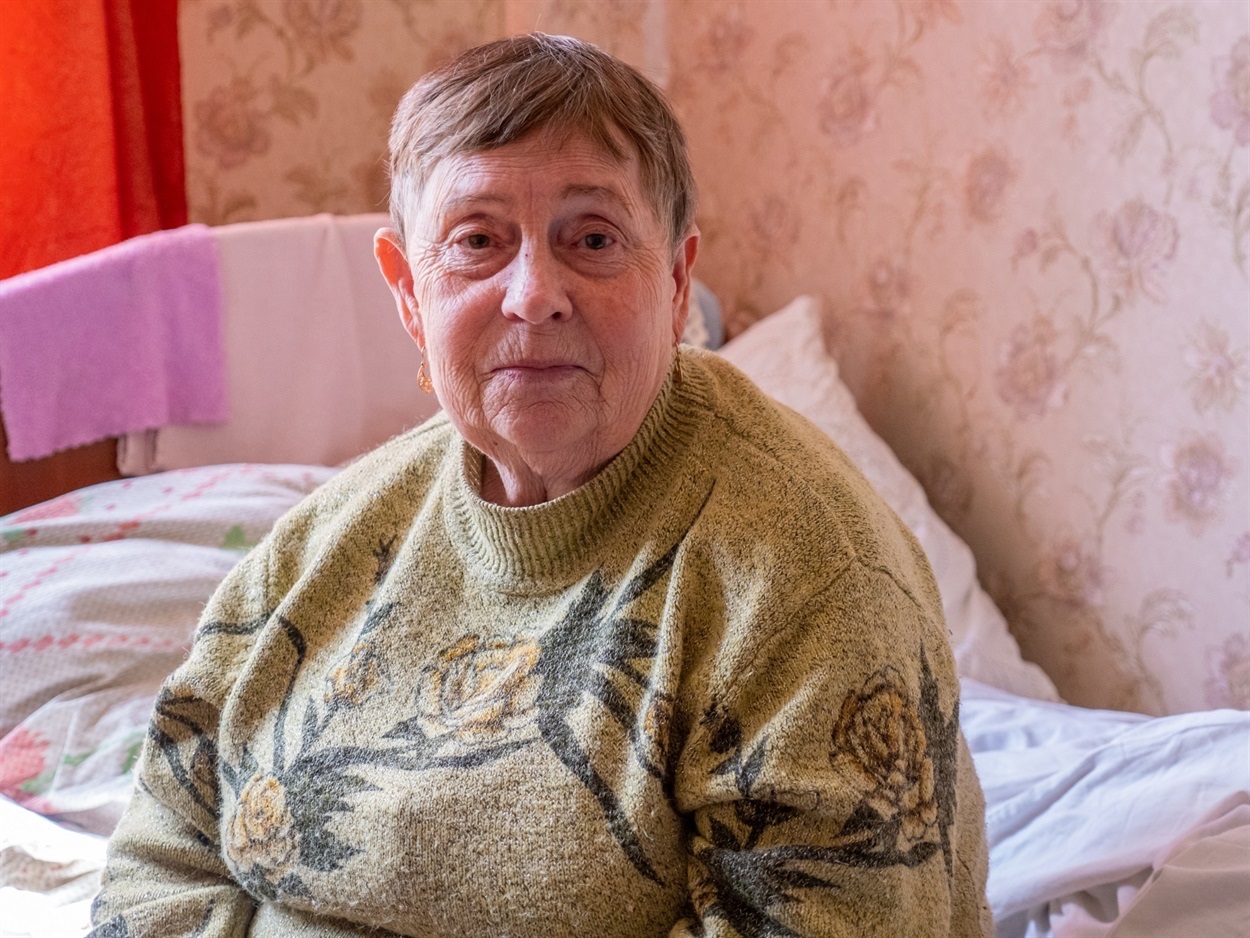 Nina says they used to have everything they needed in their house, and now when they are old, they have lost it all. Photo by Svoi.City
Nina says they used to have everything they needed in their house, and now when they are old, they have lost it all. Photo by Svoi.City
“At least we’re in relative safety now. There are many people who don’t want to leave. They’ll stay there only to be hit by a shell or taken to Kazan or Ryazan to those “filtration camps” by the Russians,” Volodymyr says.
The families agree that they cannot understand how people can stay or have a desire to return to Popasna under such shelling.
“My acquaintance says, “I’ll go to Popasna.” I tell her, “Why would you go? What’s there for you? What will you do there?” Her home was destroyed. “I’ll plant potatoes and garlic.” There’s nothing there. No houses, no shops, no hospitals. Suppose you’ve come there, what will you be doing? Making a dugout?” Antonina says.
According to her, shots could be heard in Popasna all the time ever since 2014, especially in the suburbs. However, what is going on now cannot be compared to what was then.



